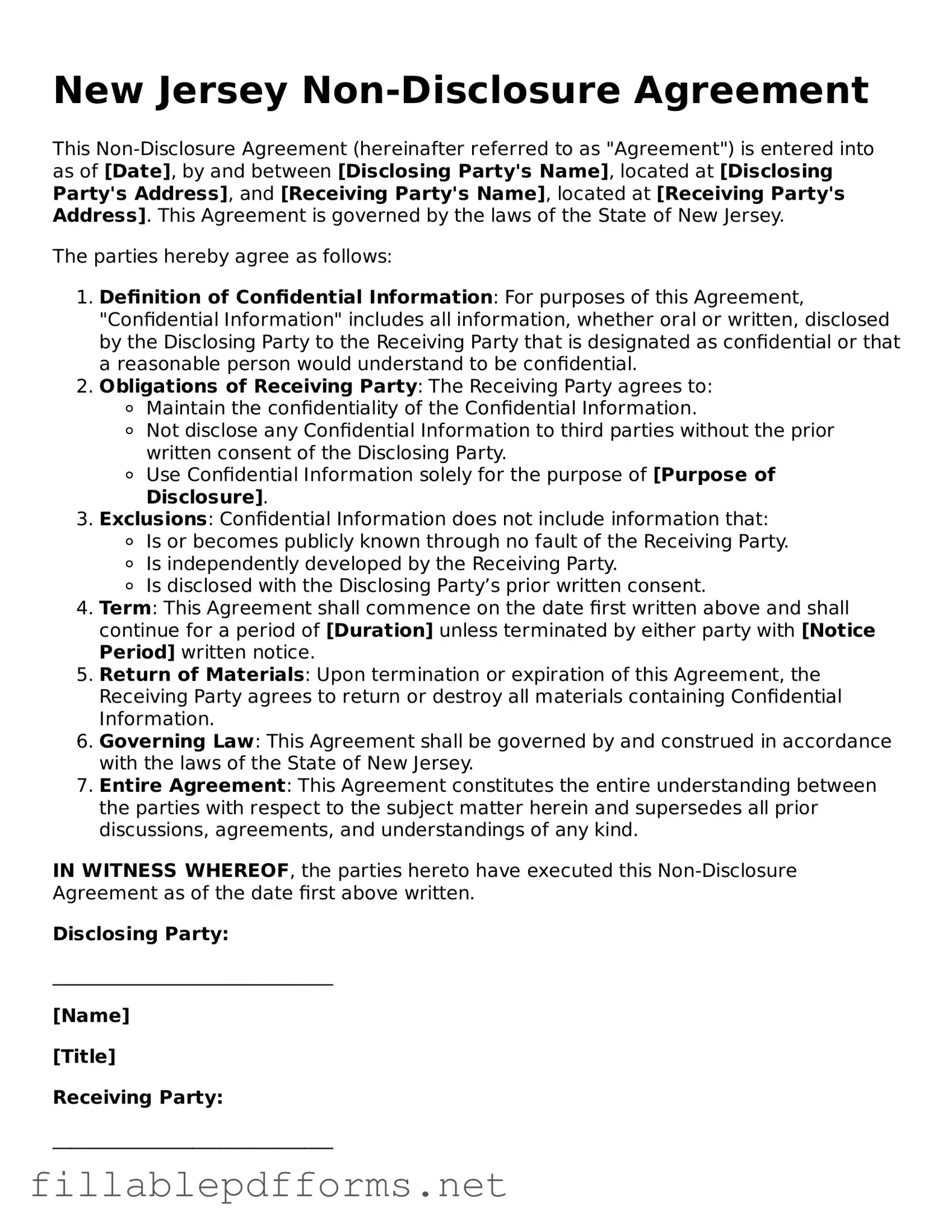Attorney-Verified Non-disclosure Agreement Form for New Jersey State
A New Jersey Non-disclosure Agreement (NDA) is a legal document designed to protect confidential information shared between parties. This form ensures that sensitive data remains private and is not disclosed to unauthorized individuals. By using an NDA, businesses and individuals can safeguard their proprietary information and foster trust in professional relationships.
Launch Editor Here

Attorney-Verified Non-disclosure Agreement Form for New Jersey State
Launch Editor Here

Launch Editor Here
or
▼ Non-disclosure Agreement PDF
Almost there — finish the form
Complete Non-disclosure Agreement online fast — no printing, no scanning.